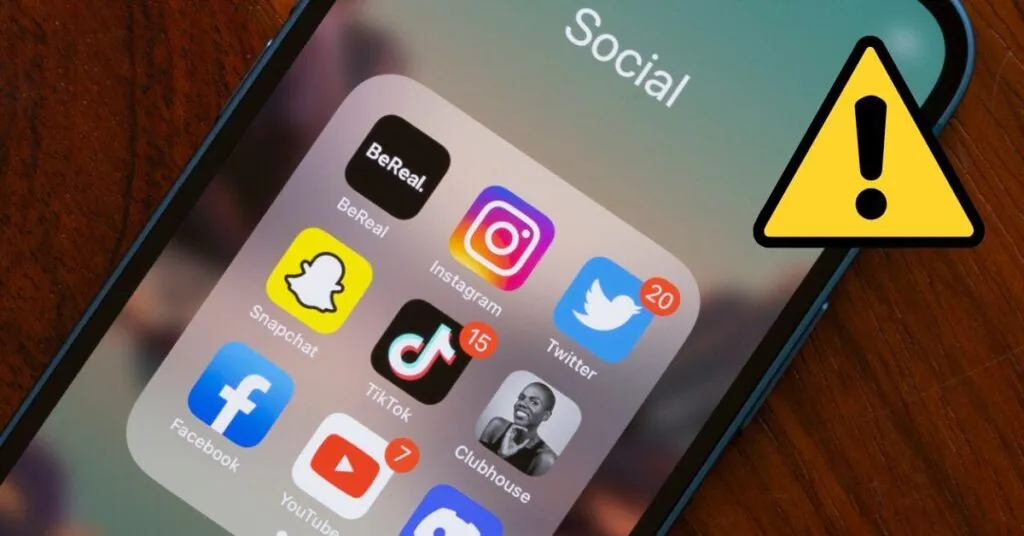Social Media Apps Keep Crashing – In today’s highly connected world, social media platforms provide effortless communication, sharing and connection. However, users often experience annoyance due to social networking apps failing.
An unexpected collapse may ruin your day no matter what you’re doing on Facebook, from browsing your timeline to uploading images to participating in live conversations.
This article’s goal is to investigate the causes of the widespread problem of social media app crashes, including but not limited to YouTube app crashing, by looking at both technical and user experience aspects of the matter.
Table of Contents
Software Complexity and Bugs
The complex structure of the code powering social networking apps is a common culprit in their frequent failures to launch.
News feeds, instant notifications, live video streaming and interactive user interfaces are just a few of the many elements found in today’s sophisticated social networking networks.
Because of its intricacy, faults in code or compatibility can lead programmes to malfunction or even crash. Even small discrepancies in the code can have cascading effects, impacting the app’s stability.
Device and OS Fragmentation
The complex task of designing strong social networking applications is made more difficult by the wide variety of mobile devices, including smartphones and tablets, as well as by the many different versions of operating systems.
As such, developers must test their code across a wide variety of hardware and operating system configurations. Because of this heterogeneity, it can be difficult to ensure that the programme runs well on all devices and OS versions.
Memory and Resource Management
Social media apps like Facebook Messenger often demand significant memory and resources due to their rich media content, real-time interactions, and background processes.
If the app’s memory usage isn’t managed efficiently, it can exceed the device’s available resources, which will ultimately lead to multiple Facebook Messenger Issues.
Memory leaks, where memory isn’t properly released after use, can gradually degrade the app’s performance and stability over time, impacting the user experience.
Network Connectivity and Latency
In order to get and update content in real-time, social media apps depend significantly on the network connection.
When an app isn’t able to smoothly manage fluctuations in network quality, including weak signals or unexpected losses in connection, it may crash. Moreover, excessive latency might cause slow app behaviour, which makes users more likely to inadvertently trigger crashes via impatient interactions.
Server Overloads and Backend Issues
There are several causes of app crashes besides issues with the user’s device. The efficiency of an app relies heavily on the backend servers that store user information, process requests, and provide content.
The app’s functioning might get impacted owing to crashes or delayed performance if the servers face overloads because of abrupt increases in traffic or technical difficulties.
Operating System Updates
While OS updates are intended to enhance security and functionality, they can also inadvertently disrupt the compatibility between the app and the OS. Changes in system behaviour or APIs (Application Programming Interfaces) can render certain app features incompatible, leading to crashes until the app is updated to align with the new OS requirements.
Third-Party Integrations
To provide additional functionality or facilitate development, many social networking applications make use of external libraries, tools, and application programming interfaces.
Yet, it is possible for vulnerabilities or inconsistencies to be introduced through these integrations, which might ultimately result in crashes.
It is possible that updates or changes to the third-party components can cause problems inside the programme, leading to unexpected crashes.
User-generated Content and Input
Users contribute a significant portion of the content on social media platforms, such as text, images, videos, and comments. The dynamic and diverse nature of this content makes it challenging to predict all possible scenarios.
If users upload content with unconventional formats, large file sizes, or corrupted data, it can strain the app’s resources and cause crashes during content rendering or processing.
App Design and User Experience
The design and user experience of an app are frequently neglected as possible causes of crashes. Unintentional crashes may be triggered by users owing to poorly designed user interfaces, muddled navigation, and unintuitive interactions.
By predicting user behaviour and offering clear direction, well-designed software should reduce the likelihood of user-caused crashes.
Lack of Testing and Quality Assurance
Rigorous testing and quality assurance are essential to identifying and rectifying potential issues before they reach users. However, rushed development cycles or inadequate testing can result in overlooked bugs and vulnerabilities that lead to app crashes in real-world usage scenarios.
Conclusion
In the ever-evolving landscape of social media, app crashes continue to be a source of frustration for users and developers alike. The complexity of modern social media platforms, coupled with device diversity, software bugs, and backend challenges, contributes to the persistent issue of app crashes.
By understanding the multifaceted factors that can lead to crashes, developers can take proactive measures to enhance app stability through efficient coding practises, comprehensive testing, and continuous optimisation. However, users should contribute by keeping their devices up to date, providing constructive feedback, and being patient with app developers as they work to deliver seamless social media experiences.


